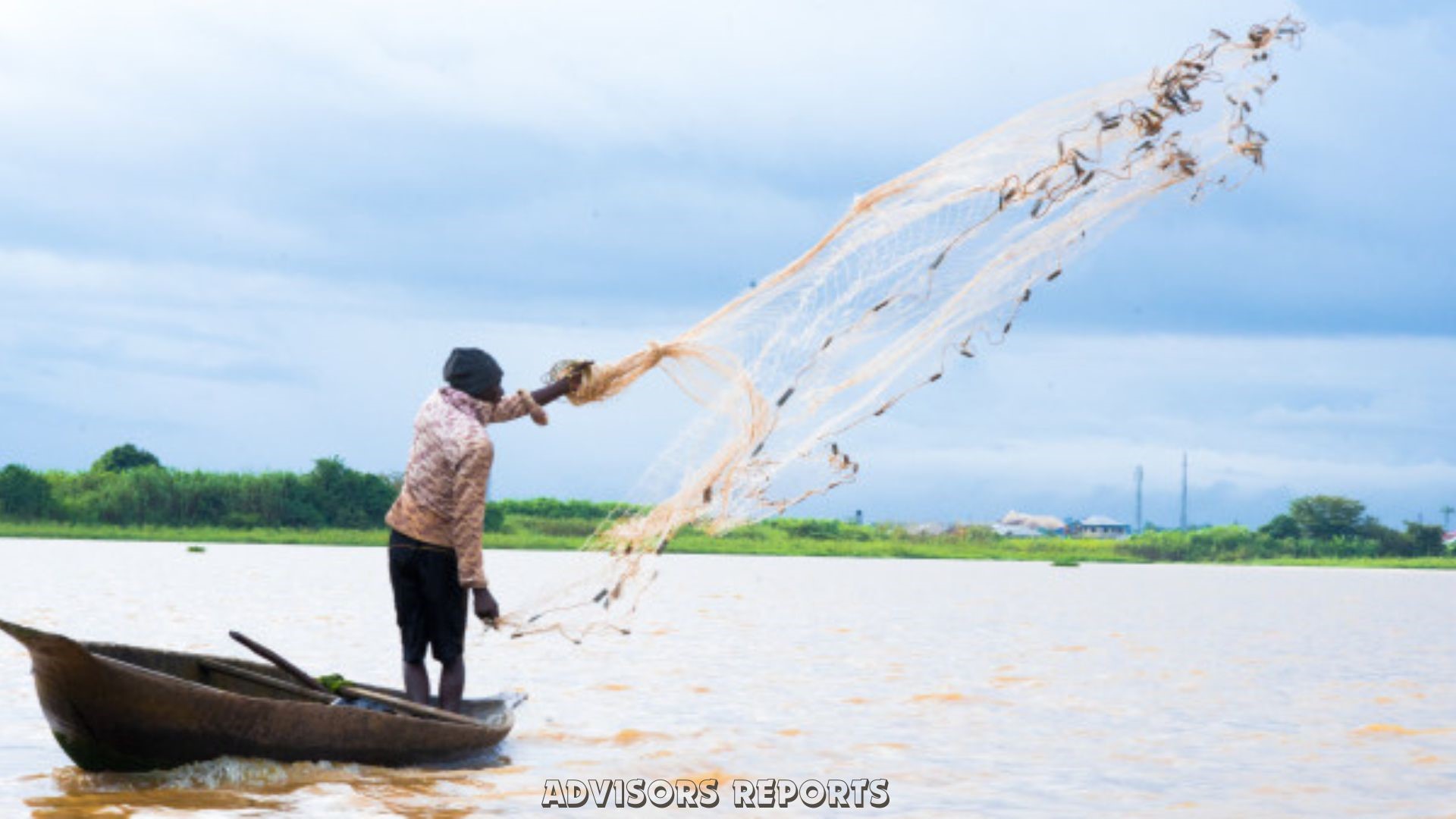Oredola Adeola
The Nigerian Government is gearing up to overhaul its antiquated Fisheries Act of 1967, which currently enforces penalties as low as a fine of N500 or six months in prison for unlicensed craft owners.
In an unprecedented move aimed at combating illicit fishing practices, the National Assembly is gearing up for a crusade against both domestic and foreign violations within the country’s maritime borders.
At the heart of this initiative lies the proposed repeal and revision of the 1967 Fisheries Act, which currently imposes penalties like a fine of N500 or six months in prison for unlicensed craft owners.
However, lawmakers have pointed out that these antiquated sanctions are no longer proportionate, with six months behind bars being equivalent to just N500 – a stark contrast to modern-day standards.
Advisors gathered that this realization underscores the urgent need for updated legislation, as the current framework falls short in effectively deterring and penalizing offenders.
Notably, the existing legal regime, previously overseen by the Ministry of Agriculture and Rural Development, appears to be obsolete according to parliamentary sources.
As a result, the National Assembly aims to introduce new measures that reflect contemporary realities while ensuring sustainable management of marine resources.
Nigerian legislators under the House of Reps Committee on Maritime Safety, Education and Administration, made this known during a workshop with NIMASA, on Friday, in Lagos.
Hon. Uduak Odudoh, Deputy Chairman, House Committee on Maritime Safety, Education and Administration stated that the committee and by extension the National Assembly is committed to developing laws that would expedite the growth of blue economy.
According to him, the Committee will be meetings to review the documents that have been presented.
He said, ” During the workshop, we discovered from the need to meet again in order to fully capture what to do as legislators for the maritime administration, safety and education.”
“We are now aware of some laws that are obsolete as well as those developed by the previous assembly but yet to be assented by the president.
“Maritime is a broad field and we intend to have sub-committees within our fold by assigning roles to everyone. This committee is embedded with men of proven integrity and vast experience like Hon. Wole Oke who has over 20 years’ experience in the Assembly.
” We are also going to partner with the Senate to push for the signing of these bills into law.”
Jean Chiazor Anishere (SAN), Principal Partner, Jean-Chiazor and Partners, in her presentation outlined the legal requirements to enable Nigeria to harness its marine and blue economy potentials.
Anishere further called for the review of the NIMASA Act, emphasizing that the agency is still accountable to the Transportation Minister according to the Act despite the creation of a Ministry of Marine and Blue Economy.
The lawyer revealed that fisheries and aquaculture form an essential part of the blue economy but lamented that the Fisheries Act is in a dire need of review.
She said, “There is no law protecting illegal fisheries or imported fisheries in our laws because it is under the Ministry of Agriculture and Rural Development and such a Ministry does not exist.
“We need to review the Fisheries Act. Again, in the Fisheries Act, it is stated that where the owner of a craft has failed to license his craft, such an owner will be punished by a fined of N500 or 6months imprisonment.
“The ridiculously of this act is the fact that 6months imprisonment is commensurate to N500. This Act was established in 1967.
“There should be a provision of a one stop department that conglomerates representatives of Ministry of Agriculture and Food Security, Nigerian Navy, Ministry of Marine and Blue Economy, Ministry of Transportation, National Inland Waterways Authority (NIWA), and other connected regulatory agencies/bodies towards implementing lawful, cohesive and effective exploitation of marine resources,” she stated.
Anishere also confirmed that Nigeria needs to have a national Blue Economy Policy or strategy that outlines the government’s vision for sustainable ocean resource management and development.
Dr. Bashir Jamoh, Director General of NIMASA, in his remark stated that the organizational structure of the agency and its deliverables under the 3S tripod representing – Maritime Safety, Maritime Security and Shipping Development.
Jamoh further called for an enabling legal environment as he explained the linkages between blue economy and industries like oil and gas, financial sector, hospitality, engineering, mining, waterway transportation, among others that dovetail into national development.
He confirmed that maritime security stats in Nigeria and the Gulf of Guinea showed a significant decline in piracy and other maritime crimes since the implementation of Deep Blue project and heightened partnership with Nigerian Navy as well as other regional and international partners.
He said, “The effective implementation of the Deep Blue Project contributed to reduction in the piracy cases with only one piracy case as of May 2022.
There were 6 cases in 2021 and 35 incidents in 2020 and in 2019 respectively. Nigeria recorded zero cases in the second half of 2022 and throughout 2023,” Jamoh said.
Advisors Reports’ further check showed that Nigeria ranks amongst the globe’s leading fisheries powerhouses, meanwhile, shocking revelations exposed a staggering loss of over $20 billion each year due to rampant illegal fishing primarily driven majorly by Togolese, Ghanaians, Beninoise and other foreigners.
This alarming figure overshadows the substantial contributions made by the country’s thriving waterscapes—Uganda and Nigeria together accounting for 7% of worldwide aquaculture output according to the latest FAO report.
Despite its significant role within Nigeria’s economy, averaging between 3–4% of the nation’s gross domestic product (GDP), the fishing industry faces a pressing challenge with illegal practices threatening both local livelihoods and national prosperity.
Specifically, under the agricultural sector, from 2015 (Q3) to 2022 (Q4), the fishing unit generated a total number of N9,622,888,800,000 — contributing 3.74 per cent to the overall GDP of the sector, emerging as the third revenue generator for the Agriculture Sector in the period under review.
The unit also recorded an increase by 18.24 per cent to N624,791,740,000 in 2017, and continued to grow in 2018 by 34.78 per cent when it generated a total of N842,105,030,000.
By 2019, it realized the sum of N1,212,390,200,000 at 43.97, and during the COVID era, the unit activities yielded 36.75 per cent to N1,657,910,450,000.
It further rose by 34.52 per cent in 2021 after generating the sum of N2,230,355,870,000.
At the end of the 2022 fiscal year, the sum of N2,297,600,850,000 was generated by the unit to the Agric sector, this showed a percentage increase of 3.01 per cent on a year-on-year basis.
From humble beginnings in Q3 of 2015 through Q4 of 2022, the Nigerian fishing sector has grown into one of the agriculture sector’s top three revenue generators, yet this success story is marred by the specter of illicit and unauthorised fishing activities.






